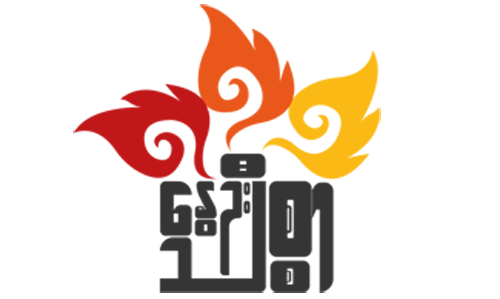MoeMaKa, February 01 2023
2 Years after the Military Coup
News that a military coup could take place had been coming out for a few weeks before the coup, and the news media had even aired programs about opinions and discussions regarding the coup.

Some said that since the enactment of the 2008 constitution, the military had taken the upper hand, holding 25 percent of the seats in the parliament and controlling three important ministries in the government, so it was concluded that there was no need for the military coup. So, they argued by standing on the side of no military coup. Some had speculated that the act of finding fault with the Union Election Commission by issuing dozens of statements was paving the way for a coup.
As far as I was concerned, I thought that the idea of a military coup was more likely. At a meeting in 2018, when I met a former member of parliament, he once said that he was worried that the military would not stand still if the NLD won a landslide victory in the upcoming 2020 election.
That’s right! From 2010 to 2015, the former generals portrayed these 5 years as they wished under the name of the Union Solidarity and Development Party (USDP). After the five-year turn of the NLD party with a landslide victory in 2015, people could see how much the military’s political power and economic rights were controlled and limited during that 5 years, and if the USDP Party lost the election again in the next 5 years, he is worried because he didn’t think the military would sit idly by.
Since that time, I had kept this idea in mind as a possibility to be considered, and when I heard about the press conferences held by the military regarding voters frauds after the 2020 November election, I considered a military coup to be a possible situation. In the third week of January, in a press conference, the question of whether it was possible to say that there would be no coup, the military spokesman made public the possibility of the coup by telling two negative saying that there was no guarantee that there would be no coup.
After listening to the press conference, it was considered that the coup was 80 percent certain that it would happen, and the chance of avoiding the coup before the day of convening the parliaments depended only on the NLD and the military.
The last few weeks had been spent listening to news and rumors about how they would avoid it. Some news media reported that the meeting was held between the NLD and the second-level leaders of the military on January 28, 2021. According to the news, it was known that the discussion did not succeed. It was not clearly known how the discussion would proceed, which factors would be the military holding, and what would be the NLD holding and stood.
In the days before the end of the opening week, the elected representatives of parliament came to Nay Pyi Taw Municipality Avenue, and when the news that military representatives of parliament appointed by the military were being vaccinated against Covid-19 were reported, some concluded that the military was preparing to go to the parliament and concluded that there was no possibility of a coup d’état. I noticed that the social media wrote as if the military coup was void.
On Friday evening, some NLD parliament representatives posted pictures on their Facebook pages indicating that they had received the February 1 Hluttaw agenda.
According to some people who heard about it, the coming out of the Hluttaw agenda was the final incident to cancel the appointment of the military leader and the leader of the NLD for the last time.
After the discussion on January 28 failed to produce results, the NLD leader tried to meet the military leader through a religious leader. However, there were some conditions attached to the meeting agreement. If the Hluttaw was held, it was requested not to reach the step of choosing a chairman, and if the chairman had been chosen, they requested the Hluttaw be suspended for a period of time. The NLD side agreed to that and after the Hluttaw agenda was released the day before the weekend, it included the step to elect the chairman of the Hluttaw. Therefore, releasing such a plan was considered a violation of the NLD’s promise, and the military side said that the plan to meet at the end of the week was canceled. It may be that the military had already decided the coup after January 28 without wanting the next meeting, so they pretended to appoint the meeting and canceled it under the pretense of choosing the chairman on the above Hluttaw agenda.
The opportunity to negotiate not to seize military power, in other words, the last hope to avoid the current situation, had been destroyed. This information was known after the military coup.
During those days, it was a situation where I had to wait and listen to some close people for the latest and special information. Those were days where I had to keep my ears open in case I heard something special late at night.
On Sunday, which was a weekend, I saw some posts on the Facebook pages of some NLD representatives of parliament saying that they were ready to attend the Hluttaw, and I felt a little relieved. But thinking that the situation was unpredictable, I watched news or unusual situations on social media until late that night and went to bed at around midnight. I went to bed with the thought that tomorrow was the day when the parliament would convene, and something special would happen.
I kept my phone under my pillow, and when I awoke past midnight before dawn, I took it out and opened Facebook. I saw on his son’s Facebook page that his father, an NLD township chairman, had been taken in a military vehicle. Then, convinced that there had been a coup, I jumped out of bed and went to open the computer.
When I exchanged information with some of my friends and some Burmese from Europe who were online, I learned that some members of the state government had been detained in other cities, and knew that the military coup was certain.
Due to the coup, from around 3:30 a.m., I was monitoring the posts that appeared as updates online and exchanging news with online acquaintances, and the time passed around 5:00 a.m. I became curious to know what was possible after the military coup and what kind of sights to see in the city. Wanting to go out and explore, I thought of going to places like Yangon Regional Hluttaw, Daw Aung San Suu Kyi’s residence on University Avenue, and the city hall, so I left home around 5:00 am.
There was no sign of security on Pyay Road in front of the Yangon Regional Hluttaw, the Prime Minister’s compound, and Daw Aung San Suu Kyi’s residence on University Avenue. In front of the city hall near Sule, there was no special security. It was like most of the Yangon residents did not know about the military coup, and I saw no military vehicles or tanks moving around the city as a parade in the previous days. It seemed that the people on the relevant list had been arrested in their homes and detained in military vehicles. Not only members of the government, but also the prominent writers who are close supporters of the NLD party were arrested that morning.
When I returned to the street around dawn, I saw that a house on the street was taking down the NLD flag that had been hoisted in front of the house after winning the election. I realized that people in the house would have heard the early morning radio news or the news of the military coup spreading on social media.
When I went to the market to buy food around 7 a.m., I noticed people crowding in front of the rice and oil stands. They were buying rice bags and oil containers in rickshaws and cars. A crowd had gathered in front of the bank ATM. The internet was completely cut off after 6:00 a.m., so bank ATMs stopped working. People who needed to withdraw money for urgent matters and those who needed to withdraw money from their bank account were caught in a bind.
We saw rickshaws and cars buying bags of rice in front of rice shops and oil shops in our neighborhood market, and there were 3-4 times as many people as usual.
When there is political instability, they collect rice and oil, according to the experience and awareness of those who grew up during the U Nay Win regime (Masala period). It is sufficient to say that such real-life knowledge has been passed down from generation to generation because it has occurred numerous times in Myanmar politics.
Once again, it is not known whether the military (or the military junta) will be able to fight the leaders and generations of the Spring Revolution, who are still advancing at a rapid pace, with various military and political methods until they win or lose, or whether they will choose a long-term path. The forces of the Spring Revolution have already declared 2023 as the final year.


